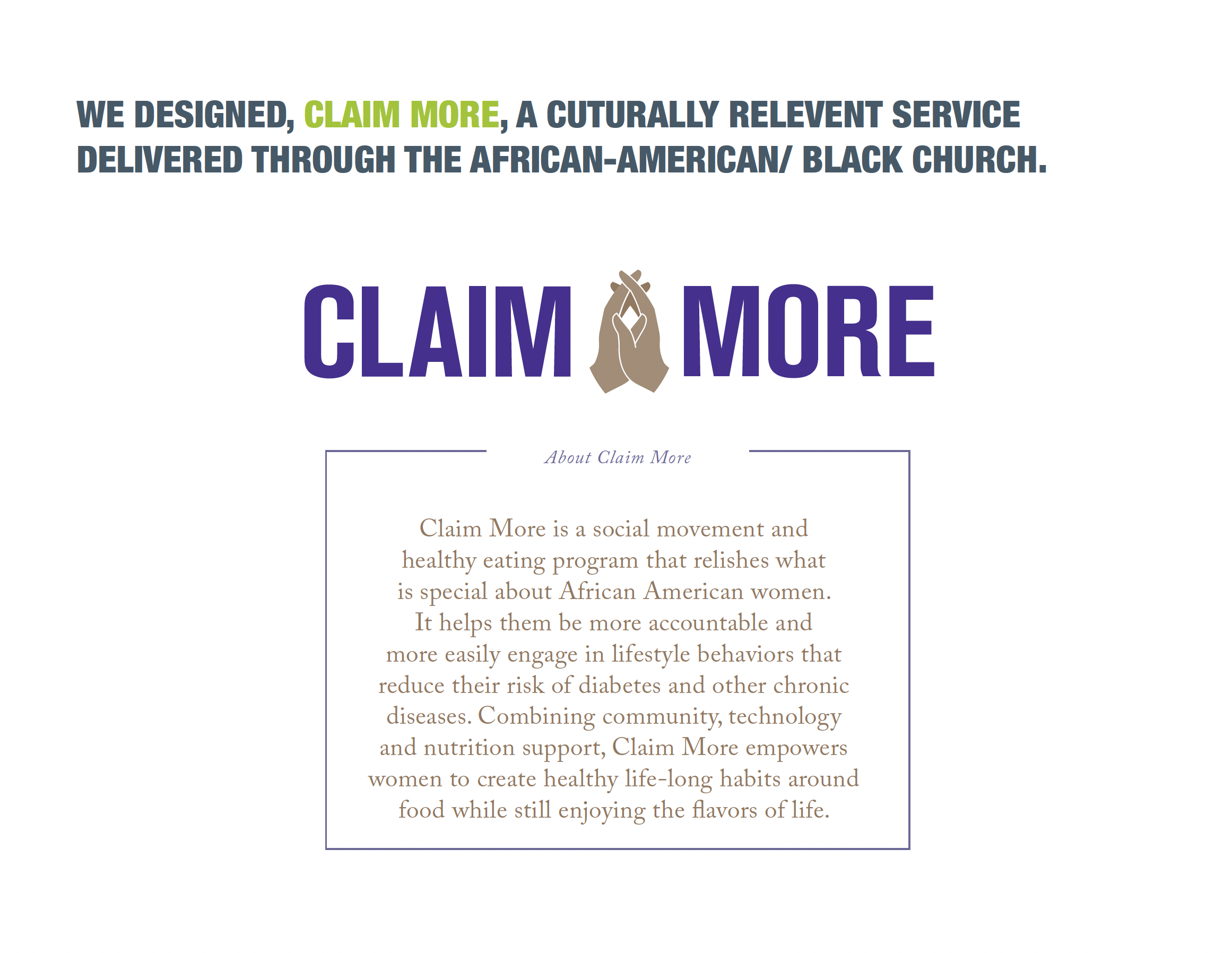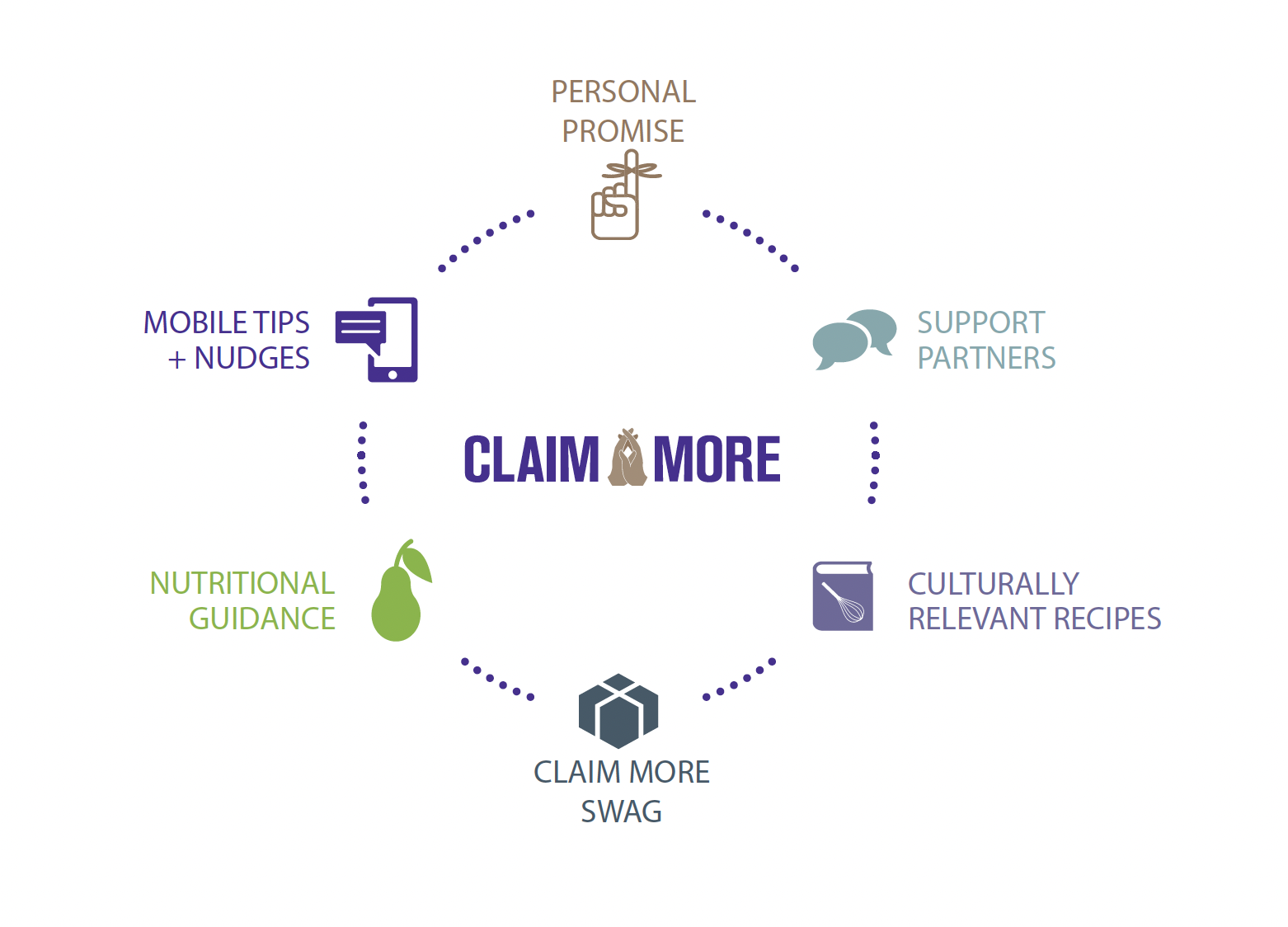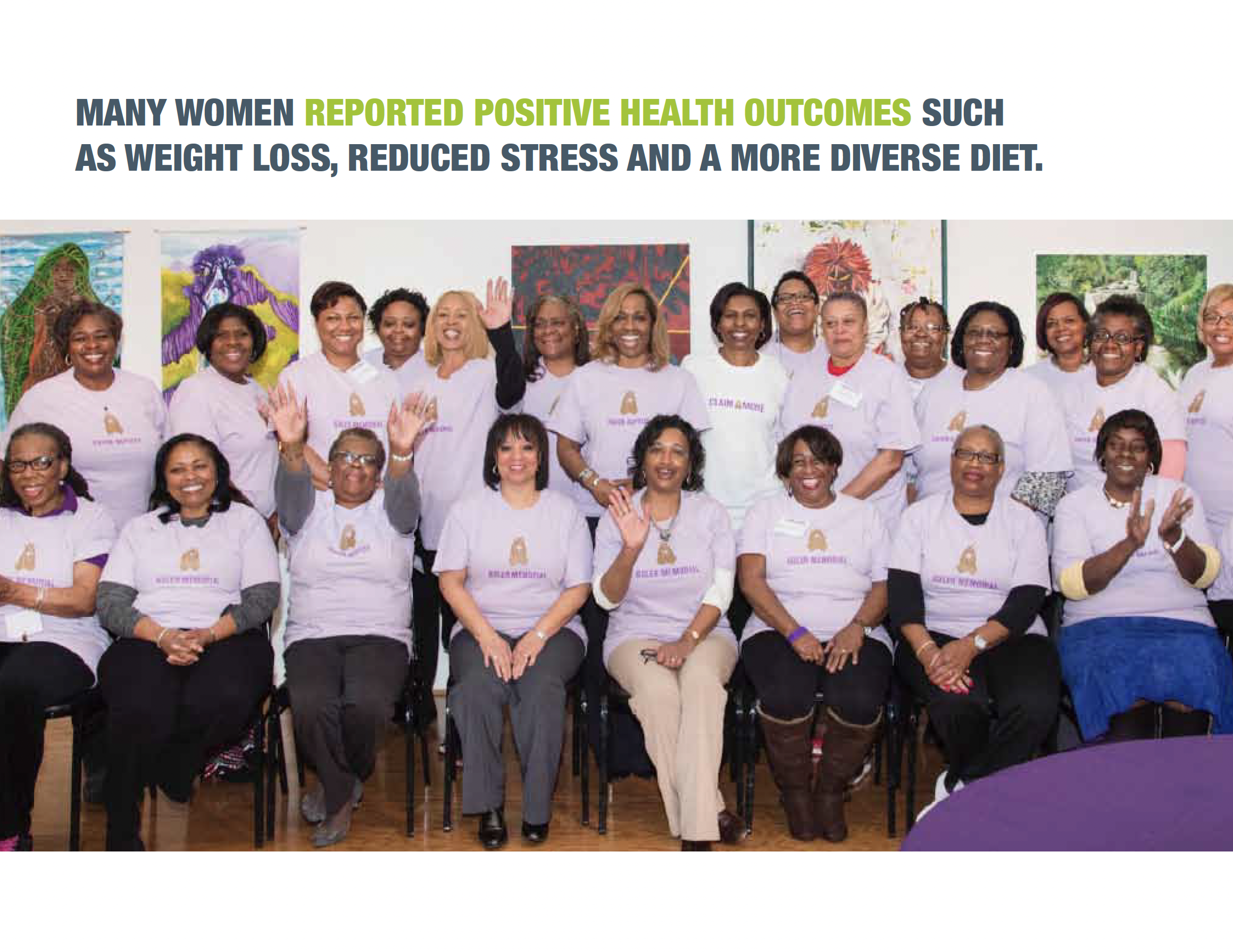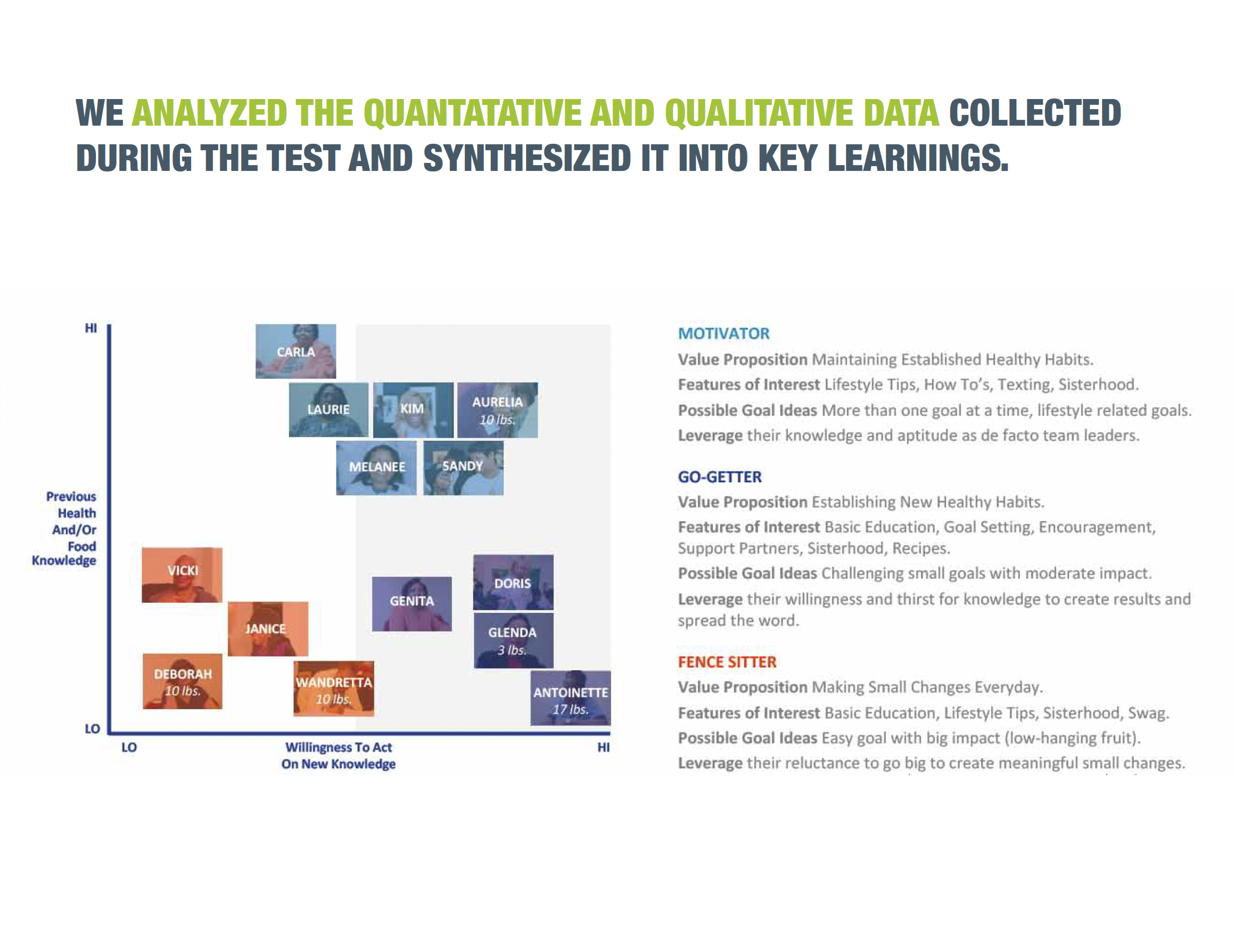






Claim More: Preventing Diabetes in AA/B Women
UnitedHealthcare | AARP Services Inc.
Read more about this project in my white papers:
Claim More™ Empowering African American Women to Make Healthy Choices
Community Engagement: From Design to Implementation
African American/Black (AA/B) women are dying at rates greater than any other group of women in the country. On average, AA/B women with diabetes die 6 years sooner than their counterparts. According to the Centers for Disease Control, in 2022, 80% of AA/B women were overweight/obese. It is estimated that 20 million African-American Women are prediabetic. Ninety percent of prediabetics are unaware of their condition. How might we impact an AA/B Woman’s understanding of prediabetes AND empower her to make new choices?
Challenge
Approach
Note: Prior to this phase of work, while at Peer Insight, I spent 18 months completing the foundational activities needed to launch this service pilot. These activities included ethnographic research, prototyping, and testing.
In the Fall of 2015, Claim More launched in two African-American churches in Winston-Salem, NC. Approximately 30 women participated in the program which included mobile tips and nudges, nutritional guidance, culturally-relevant recipes, and Claim More swag (incentives and gifts).
Claim More was developed specifically around the unique culture and needs of AA/B women. Some of the custom service elements included:
The service was offered and executed in African-American churches, a trusted and inspirational resource in the life of AA/B women and their families.
The familiarity of the venue and the church environment allowed the women in the program to develop a strong sisterhood of support— laughing, crying & learning together.
The healthy eating curriculum was designed and developed by a female AA/B nutritionist and covers topics that matter to these women such as common pitfalls in the AA/B diet, and information about the female body in relationship to food, exercise, and health.
The brand, colors & tone of service were designed to resonate with AA/B women, drawing upon both Biblical & cultural references that are prevalent in their daily lives
Outcomes
Many women reported positive health outcomes such as weight loss, reduced stress, and a more diverse diet.
Analyzed the quantitative and qualitative data collected during the test and synthesized it into key learnings.
Developed 3 archetypes to help describe and predict the potential impact of the program on each type of woman, taking into consideration an individual’s previous health and food knowledge vs. their propensity to act on new knowledge (vs. doing nothing).
Conceptualized a business model hypothesis, journey map, and service blueprint to support the next live iteration of the service in a neighboring community

